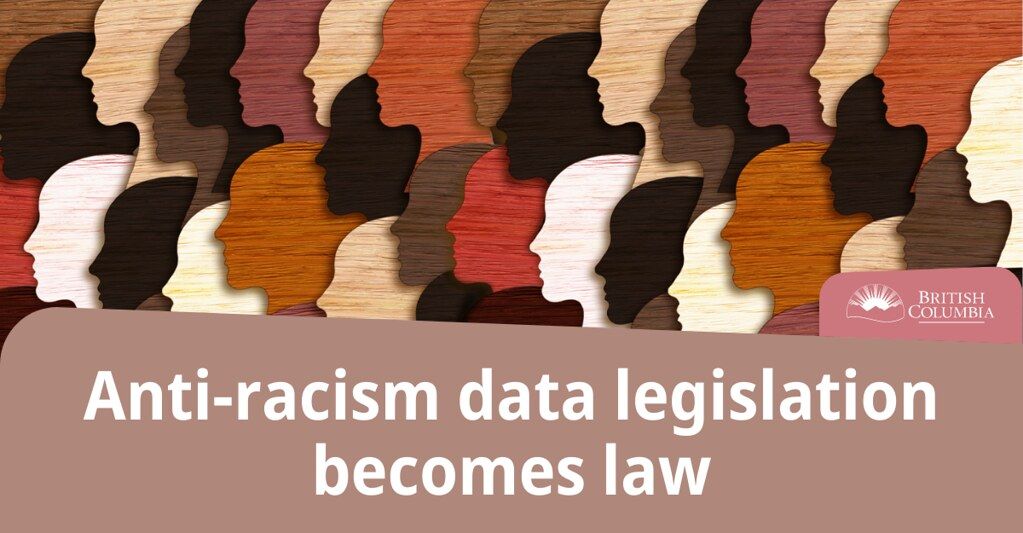Anti-racism data legislation becomes law

Indigenous and Black people, and people of colour, are another step closer to having better access to government programs and services as the historic Anti-Racism Data Act is enshrined in B.C. law.
The Anti-Racism Data Act, introduced on May 2, 2022, passed unanimously through the legislative assembly and received royal assent on June 2, 2022. In partnership with Indigenous Peoples and racialized communities, the Province is now beginning the work to collect intersectional demographic data, such as age, gender identity and ethnic origin. This will help break down barriers and better identify interconnected issues, such as economic status, employment and outcomes in health care.
“We know that some racialized people are hesitant to share their personal information with government because of its history of colonialism and oppressing people of colour. That’s why we’re working in partnership with Indigenous and Black people, and people of colour, to develop ways to collect voluntary data safely,” said Rachna Singh, Parliamentary Secretary for Anti-Racism Initiatives. “Keeping community members at the heart of our work is central to achieving this goal. It is only by working in partnership with communities that we can create trust and build transformative programs that truly support everyone in this province.”
To support the collection of demographic data, a new anti-racism data committee will be formed in the coming months. This committee will bring together community members to collaborate with government to determine key research priorities and how to gather data to identify and eliminate systemic racism in the public sector.
By the end of the year, a voluntary population survey will be conducted by BC Stats. Statistics from this survey will be released along with defined research priorities in summer 2023.
“The data collected through the new Anti-Racism Data Act will shine a light on where barriers exist in government programs so that, together with racialized communities, we can make improvements and create a more equitable province for everyone,” said David Eby, Attorney General.
Under the act, safeguards and protections will be put in place to protect data and make sure the information is used to help communities. Government ministries will be required to follow careful guidelines around how data is shared, with information to be released publicly each year to support and advance racial equity.
“Communities have told us repeatedly how important it is that this data is not used to further perpetuate existing harms or unintentionally create new harms,” said Lisa Beare, Minister of Citizens’ Services. “Transparency and accountability are at the centre of this legislation, with Indigenous Peoples and racialized communities involved at every step of the way so that they know why data is being collected and how it’s being used to break down barriers, improve programs and dismantle systemic racism.”
The Province will continue to engage with Indigenous Peoples and racialized communities to support the implementation of the Anti-Racism Data Act and dismantle systemic racism in B.C. This new act is part of government’s anti-racism work to build a better, more inclusive province for everybody.
Learn More:
To learn more about the introduction of the legislation, visit: https://news.gov.bc.ca/26722
To read the Anti-Racism Data Act, visit: https://www.bclaws.gov.bc.ca/civix/document/id/bills/billscurrent/3rd42nd:gov24-1

